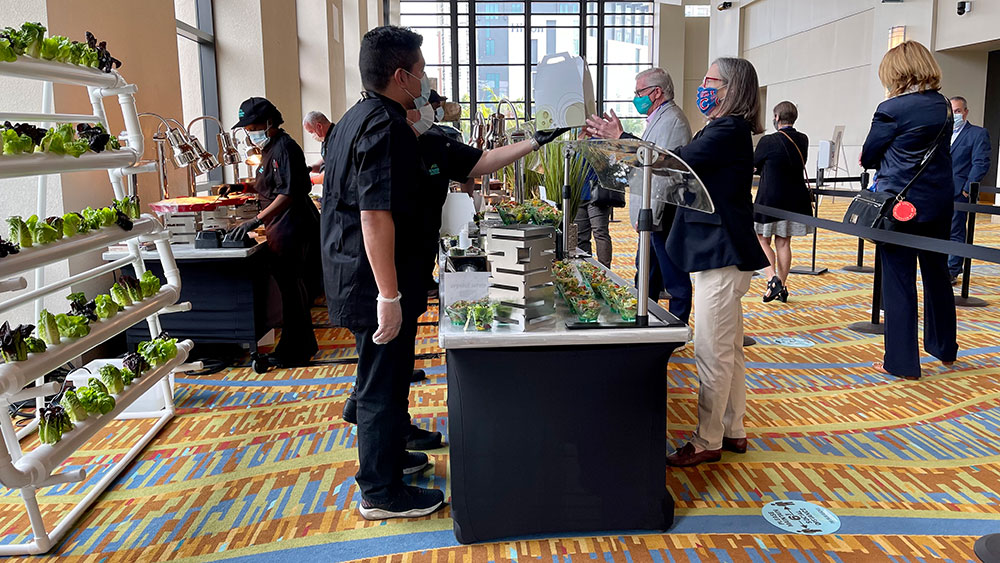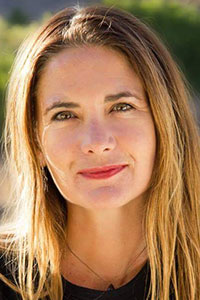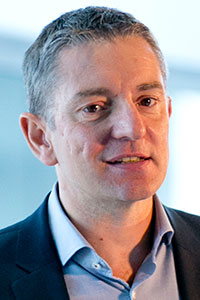
Palm Beach Convention Center personnel serve made-to-order lunches in both reusable and recyclable containers during an in-person satellite event for PCMA Convening Leaders 2021. Discover the Palm Beaches sponsored the event, which used Tellus Products packaging throughout the event made from leftover sugarcane fibers and other sustainable materials.
Last year, in the midst of COVID-19, the Global Destination Sustainability Movement (GDSM) — a platform to promote and develop the regenerative thinking and practices that will support destinations of the future — was launched. The platform is an extension of the GDS Index, which has its roots in the events industry, and creates “a more holistic focus on the nexus between the visitor economy, urban development, and a needed evolution in thinking from sustainability to regeneration,” according to Sustain Europe.
Convene spoke with Guy Bigwood, GDSM’s chief changemaker, and Melissa Baird, GDSM’s communications changemaker, to get their take on whether the pandemic has caused planners to put sustainability higher or lower on their list of priorities as they begin to redesign their face-to-face events.
Do you think that the pandemic and the events of the past year has changed consumer attitudes about sustainability, and do you think that will have an impact on meetings and events?

Melissa Baird
Baird: I think there are two things that have really come into play, and that is the issue of safety and … the impact of that on the environment, society, and on the economy.
The way that we consume is going to be completely altered by this pandemic. And it really does give an opportunity for event organizers … [to be more] efficient when it comes to single-use plastics. So, if there is any light out of this astonishing event, it is that it is giving us pause to reevaluate. And this is what the Regenerative Revolution report [a report on implementing the circular economy in business events, published by IMEX Group and powered by Marriott International] really looks at — is that there are models that we can build back better and it actually doesn’t cost anything and actually adds value at every point of the supply chain, the experience, the [local population, etc.].
Bigwood: I think there is a before and after with sustainability. …I’ve been doing for this for 20 years and really now, I’ve never seen [this kind of] energy around sustainability. It’s not only [because of] COVID … but COVID has catalyzed it, and the data and research we’ve seen and done shows how that has tipped. So now it’s just a really exciting time. [The clients] and associations we’re working with are totally transforming how they’re doing their events.
How can organizers balance safety and sustainability at their in-person events right now?
Bigwood: There’s a rush towards disposable everything, right? If you look at most of the research, disposable is actually not safer. This is a big myth that needs to be addressed. Some things need to be done in a different way, but not everything. We need to look at data around that to drive decision makers, that’s the real key.
However, I think in the short term we’ll see the death of the buffet. And buffets are one of the biggest wasters of food. So, there’s both — disasters and silver linings.
What do you think will be different overall about in-person events post-pandemic?

Guy Bigwood
Bigwood: You need to be thinking about sustainability and all of its terms … in the U.S., sustainability means “green” most of the time. But it’s DEI, it’s the environmental aspects, it’s transparency, it’s governance, it’s all of those things. We’re seeing a much better understanding of that. The good [events] will be able to weave that into a story that makes people want to participate.
Our lifestyles have changed, so when we go back to events, why should we be locked in a windowless room for 12 hours a day, eating crap food on plastic plates that we’ll throw away? That’s not an experience I want to sign up for.
The game has changed. Now, if you’re going to bring people together, you’re going to have to justify it. Meetings will have to drive results. Design will be critical.
Baird: In the context of people wanting to come together and do something that really is transformative, we must never underestimate the human capacity to want to actually do good. And it’s not good or bad, it’s “I want to make a difference.”
If you look at [an event] like a full circle, in terms of a human experience — knowledge, economy, physical, connectiveness, impact — it can happen. It is so really easy to create a model that services the key clients’ ambitions but gives back to the society close to the event’s hub, or maybe transforms an aspect of the event environment that needed to be transformed.
It’s time to activate the heart in this and say, c’mon, we got to do this.
RELATED: A To-Do List for Planet Earth’s Planners
A Global Destination Sustainability Movement Session Featuring Guy Bigwood
Jennifer N. Dienst is managing editor at Convene. This interview has been edited and condensed for length.
